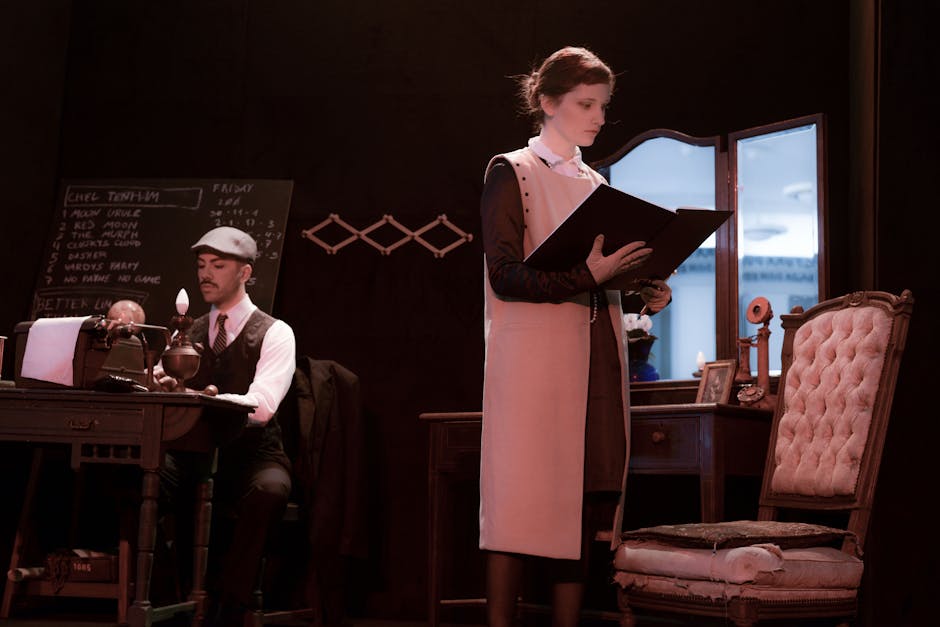Literature often portrays characters immersed within specific historical periods. From the bustling marketplaces of ancient Rome to the tumultuous streets of 1920s Paris, the backdrop significantly impacts how readers perceive and interpret the individuals inhabiting these worlds. This article explores how historical context profoundly affects character interpretation, highlighting the interplay between the lived experiences of characters and the social, political, and cultural norms of their time.
A crucial aspect of this interplay lies in understanding the limitations and opportunities presented by a particular historical moment. Consider a protagonist from a patriarchal society. Their actions and motivations, while seemingly flawed by modern standards, might reflect the societal expectations and constraints of their era. A woman, for example, unable to pursue a career outside the home might be deemed passive or lacking ambition, but within the historical context of limited opportunities for women, her choices might be entirely rational and even pragmatic. Therefore, simply evaluating a character without considering their historical backdrop risks imposing modern biases and overlooking the complex realities of their existence.
Moreover, the social structures of a particular period deeply influence character behaviours. In societies marked by rigid class systems, for instance, characters’ interactions and aspirations are significantly constrained by their social standing. A peasant in medieval Europe, for example, would likely experience vastly different opportunities and limitations compared to a nobleman. Their perspectives, motivations, and reactions to challenges would likely reflect their deeply ingrained societal roles. A thorough understanding of these social hierarchies and the associated privileges or disadvantages profoundly impacts an interpretation of their character’s choices.
Political and economic circumstances also leave their mark. During times of war, oppression, or economic hardship, a character’s actions may appear more extreme or driven by survival instinct. Their struggles and triumphs take on a new meaning within the wider historical context of societal turmoil. For example, a character who commits theft during a famine would likely appear far differently if considered within the extreme context of widespread starvation, compared to the same action committed during a time of plenty. Thus, understanding the prevailing political and economic climate becomes integral to a nuanced interpretation of the character’s motivations and behaviours.
Cultural norms further shape the character’s landscape. In some societies, certain behaviors are considered acceptable, while others are deemed offensive or inappropriate. A character’s actions in one society might seem perfectly reasonable within their own cultural context, yet be interpreted as unacceptable in another. Differences in societal values about honour, duty, or family, for instance, can significantly alter the perception of a character’s choices. A seemingly impulsive act could be understood in a completely different light when considered within the cultural beliefs of that character’s environment. A reader’s understanding of these cultural norms is paramount to interpreting a character’s behaviour accurately.
Examining the character’s language and narrative perspective is also significant. Language evolves and changes over time, reflecting societal shifts and developments. Therefore, the specific vocabulary, tone, and style of a character’s speech can be a powerful indicator of their social standing, cultural background, and historical context. Analyzing the character’s voice, along with the author’s style, can enhance comprehension of the historical context they inhabit.
Literature frequently serves as a mirror to its historical era. Characters, therefore, are not simply individual entities; they are also products of their time. Understanding the historical context allows us to appreciate the complexities of their struggles, triumphs, and flaws. Modern readers can better understand the nuances of human experience by considering the specific historical circumstances that shaped their lives. This approach promotes a more thorough and nuanced interpretation, moving beyond superficial judgment and allowing for a deeper engagement with the literary work.
Furthermore, by analysing characters in a historical context, we gain valuable insights into our own present. Studying historical characters and their behaviours in relation to their historical context highlights timeless human experiences and challenges, prompting us to confront our own biases and preconceptions. The struggles, triumphs, and moral dilemmas experienced by characters from different eras serve as a crucial reminder of the enduring human condition and the continuing relevance of literature as a vehicle for exploration of human experience.
Beyond individual characters, the historical context influences the overall meaning and impact of the work. A novel set during the American Civil War, for example, inevitably reflects the social and political turmoil of that period. The themes and messages of the story would be drastically different if set in a different historical context. Consequently, understanding the historical backdrop is crucial to fully grasping the author’s intent and the literary work’s broader significance.
In conclusion, historical context plays a pivotal role in shaping our understanding and interpretation of characters in literature. It is crucial to move beyond superficial assessments and appreciate the influence of societal, political, and cultural norms on a character’s actions, choices, and motivations. By recognizing the limitations and opportunities presented by a particular historical period, we can develop a richer and more comprehensive understanding of the human experience as depicted in literature. Consequently, it is the historical context that shapes the story and its characters, offering invaluable insights into both the past and the present.
